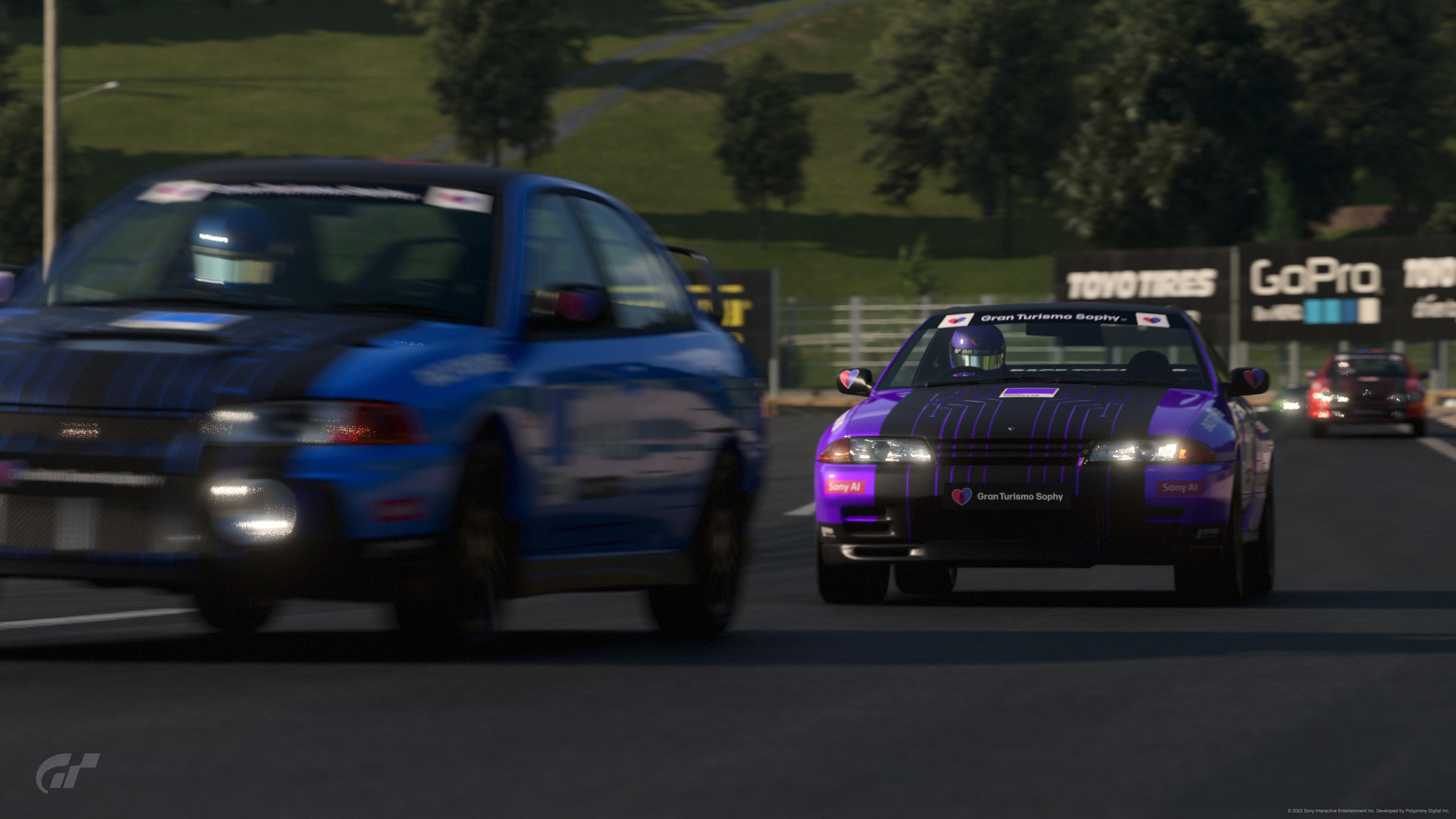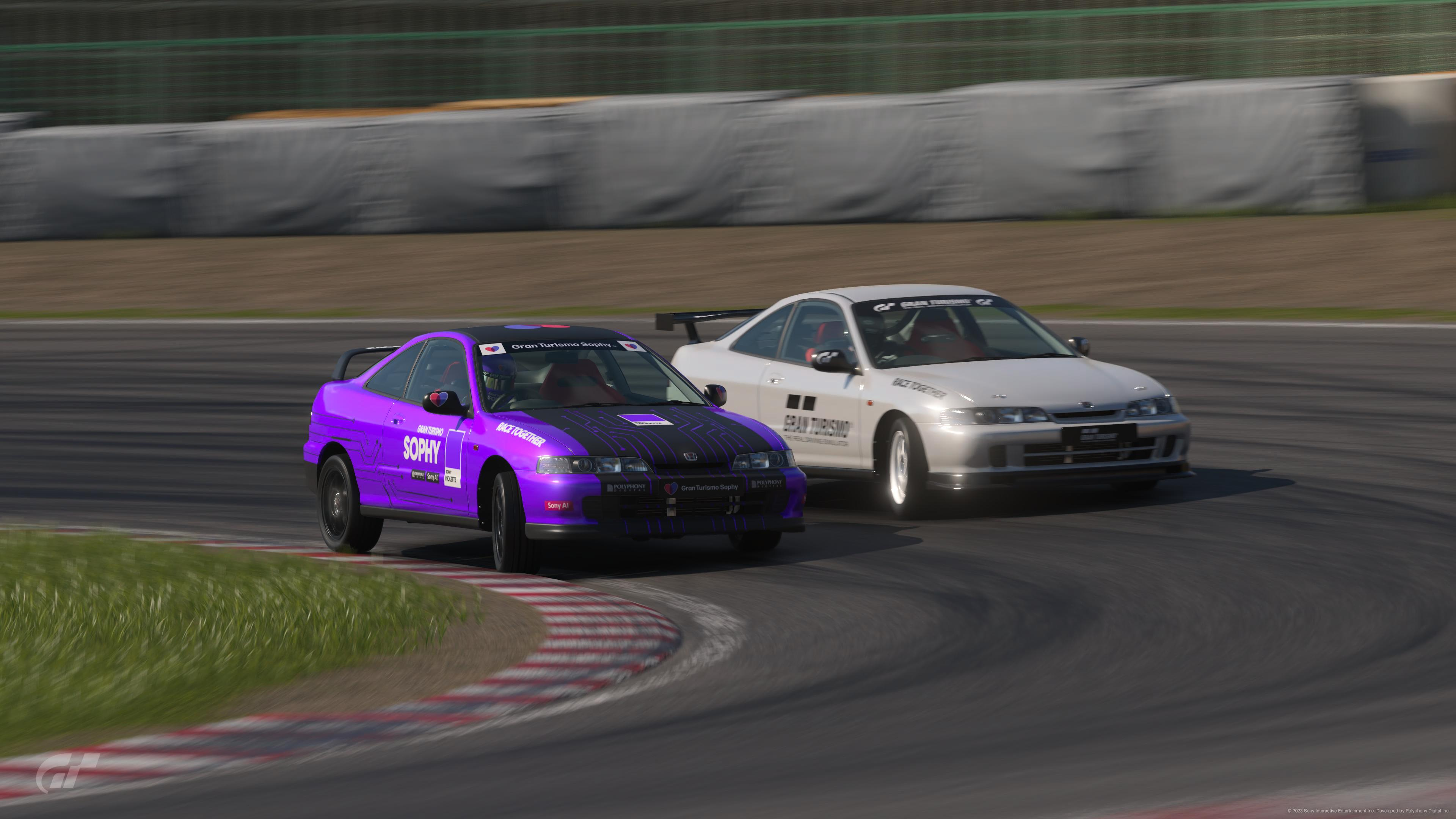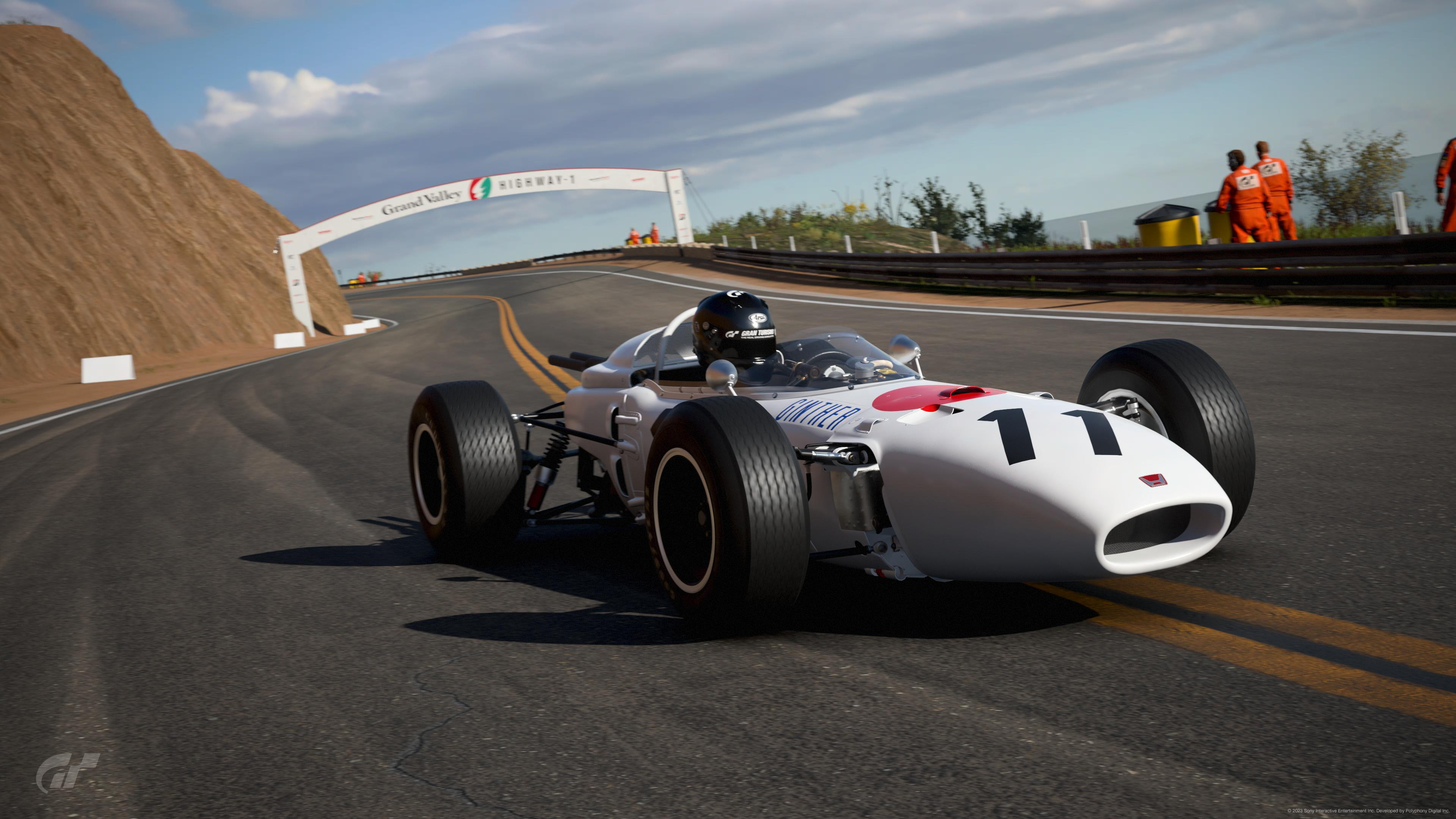New Gran Turismo 7 Update Brings Back Grand Valley, Pits You Against Superhuman AI
Read on for our impressions of what it's like to race against Sophy, Gran Turismo's AI that's actually intelligent.
On Tuesday Gran Turismo 7 received an update that's fair to call the largest in the game's almost year-long history. Perhaps the one that fixed the multiplayer or the one that let you sell cars was more impactful for other reasons, but the the just-released 1.29 patch literally adds something for everyone.
If you grew up playing Gran Turismo, your interest has no doubt been piqued by the return and reinterpretation of Grand Valley Speedway, a franchise classic. If you're into AI stuff and are especially good at this game, you'll want to try your hand against Sophy — the opponent designed by Sony's artificial-intelligence arm, in collaboration with GT dev Polyphony Digital. And if you're a virtual-reality fan and early adopter, you'll be pleased to experience the entirety of GT7 — split-screen multiplayer aside — in PS VR2.
This is a big one, and that's even before we recognize the five new cars in this update, one of which is Richie Ginther's 1965 Honda RA272 — the first grand prix winner bearing the Japanese automaker's badge. It's not as much of a handful to drive as you might suspect, and it becomes a lot more fun if you ditch the stock hard-compound racing tires for less grippy rubber. There's also the 901 Porsche Carrera RS 2.7, Citroën DS 21 Pallas and two new Vision Gran Turismo concepts from Italdesign, in on- and off-road flavors.
I wish I could comment on how the game plays in PS VR2, but alas — I don't have Sony's new hardware to test. It seems pretty great though, according to those who have already driven with it. What I can comment on is the experience of lapping the reimagined Grand Valley — now called Grand Valley Highway-1, for reasons that the picture up top likely makes clear — and what Sophy is like to race against.
First off, when we learned yesterday that Grand Valley was coming back not as a permanent racetrack, as we knew it best from GT1 through GT6, but as a ribbon of public asphalt along California's central coastline, opinions were mixed. Polyphony of course updated Trial Mountain and Deep Forest in rather dramatic fashion for GT7, reprofiling certain corners and adding new sections of track entirely — but those at least remained circuits, with similar geographic features to what they had in the late '90s. Grand Valley, by contrast, has been picked up and dropped in a completely different part of the world.
As a longtime fan myself, it wasn't what I expected or, frankly, wanted. But I warmed up to it very quickly, once I admitted how drop-dead gorgeous the new scenery is and learned that the new Grand Valley appears to be one giant love letter to the California coast. As I've barely spent more than six days in California in my entire life, I did not immediately glean this from the trailer released Monday. Fortunately, photographer Eric Yui has put together a handy thread on Twitter highlighting various landmarks that have been bestowed upon Grand Valley, like the iconic Bixby Bridge, Coronado Bridge, Rain Rocks Tunnel and Ragged Point Inn.
Real-world locations in #GT7's new Grand Valley:
-Coronado Bridge (San Diego)
-Ragged Point Inn (San Simeon)
-Rain Rocks Rock Shed Tunnel (Big Sur) pic.twitter.com/ObXvdWdwQB— Eric Yui (@EYuiSan) February 20, 2023
California is a big state of course, and in real life, all of these points of interest are pretty distant from each other. In Gran Turismo, you can visit them all in a 3.17-mile lap, driving a made-up track you may have first encountered 25 years ago. That's pretty neat.
In terms of layout this is still Grand Valley, which means it's still a dream to drive. The Turn 5 hairpin, now at cliff's edge, is wider in radius and more carousel-like than it used to be. The technical middle sector is deceptively tight as ever, while the last-sector chicane — typically everyone's least favorite part of the track — has now been moved closer to the prior corner's exit, and totally redesigned. These are all, in my opinion, welcome changes. The South Course — GT7's new name for what used to be called the East Course — is a fun blast in low-power machinery, with jagged corners and undulating tarmac that challenges you to brake in a straight line. It's all good stuff.

And then there's Sophy. First off, it's important to note that this is a limited-time event that is unfortunately exclusive to the PS5 version of the game. That makes it one of those few aspects of GT7 that lacks parity between the generations. Considering we're talking about state-of-the-art AI that probably requires a bit more CPU grunt than the PS4's decade-old Jaguar silicon is capable of, the line in the sand was bound to be drawn sooner or later.
In "Sophy Mode," shall we call it, you're given the opportunity to race four computer-controlled opponents on four tracks — Tsukuba, Alsace, Trial Mountain and Suzuka. There are three difficulty levels for each race, where your car and its upgrades are predetermined. Each race begins with a heavily gapped rolling start in which the cars ahead are all worse than yours, though the purple car behind you is at least of the same make and model. There's also a one-on-one mode that offers no prize money but allows you to race a single Sophy in a spec race with a standing start.
At my skill level, which I will describe as very slightly above average, the Beginner and Intermediate tours around Tsukuba were a piece of cake. The car you're given in the lower difficulties is much faster than what you get in Expert, and I passed the field so quickly that I never got to observe their behavior much, except for one instance when I noticed the lead Sophy shimmy right to protect the inside line around Tsukuba's final hairpin. It gave up very quickly though, prompting a sad emoji above its roof.
When I bumped up to Expert, though, I started to sweat. Sophy isn't afraid to block or get its elbows out, but it usually gives you just enough room to keep at least half of your car on the asphalt. It also doesn't tend to move more than once. It doesn't beat you on games, it beats you on speed. And if you give it any opening, it will take it.

I learned this the hard way in my Expert Tsukuba race, where the fastest Sophy Violette seized my moment of understeer in the second-to-last corner and slotted up the inside, wheels on the curb, to take the win. I'd eventually get the better of them in the Expert challenge, but when it came to the 1v1 race — where you're facing Sophy in an identical car — I was utterly helpless. I only won by driving in a manner that would have gotten my racing license revoked, blocking Sophy incessantly and trying to stall its momentum by practically parking my car in each of Tsukuba's myriad low-speed corners. If I let it beat me to Turn 1, it was gone.
In a sense, I had taken advantage of Sophy's clean driving and sportsmanship, which Sony AI engineers previously said they had to build back into the agent to teach it that racing is a non-contact sport. Whenever I was driving respectfully and Sophy and I made contact, it dove for doors I left open and attempted to shut too late. Sony's really built an competitor here that races cleanly and is fast on merit — not an artificial speed boost, where it's secretly packing a power or weight buff.
I'd love to see Sophy power GT7's AI in more events, rather than this limited-scope demo. Maybe that's more of a GT8 thing. Gran Turismo's computer-controlled competitors have historically been among the worst in the genre — usually too sheepish to race hard, occasionally too bullheaded to avoid certain ruin and pretty much always unable to win without cheating. This is a very encouraging taste of a racing sim that simulates human behavior with the same care and focus as car behavior, and I'm very excited to watch it develop.
